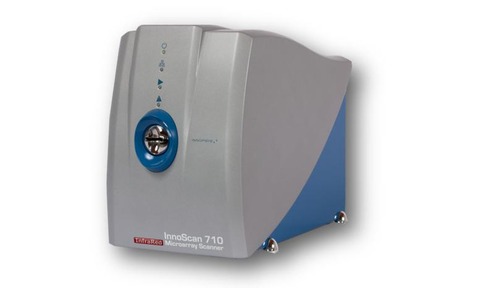
Scienion AG and Innopsys have joined forces to integrate microarray production and detection equipment.
The companies claim that combining technologies will benefit customers for a broad range of applications including ’reverse phase protein array’ (RPPA).
RPPA is a high-throughput antibody-based technique developed for functional proteomics studies to evaluate protein activities in biological networks.
This is useful in identifying drug selectivity, classifying tumors, predicting responses to target therapies, and many more.
Lysates from cultured cells or patient tissue samples are typically deposited and incubated on nitrocellulose membranes.
Scienion’s sciFLEXARRAYER technology is designed to precisely and gently print lysates on nitrocellulose coated glass slides without damage to the surface.
Innopsys InnoScan 710-IR near infrared scanner allows for an IR detection readout of these arrays.
It combines a 3µm per pixel resolution with 670 nm and 785 nm excitation lasers, a spectral range where the auto-fluorescence of nitrocellulose that is typically present in the visible range is significantly decreased.
Combining both products will significantly improve signal to noise ratios.
Systems will be offered as full out-of-the-box solutions, where equipment and software have been configured to execute RPPA assays from A to Z. This will lower the barrier of entry, allowing more researchers to experiment with RPPA.




